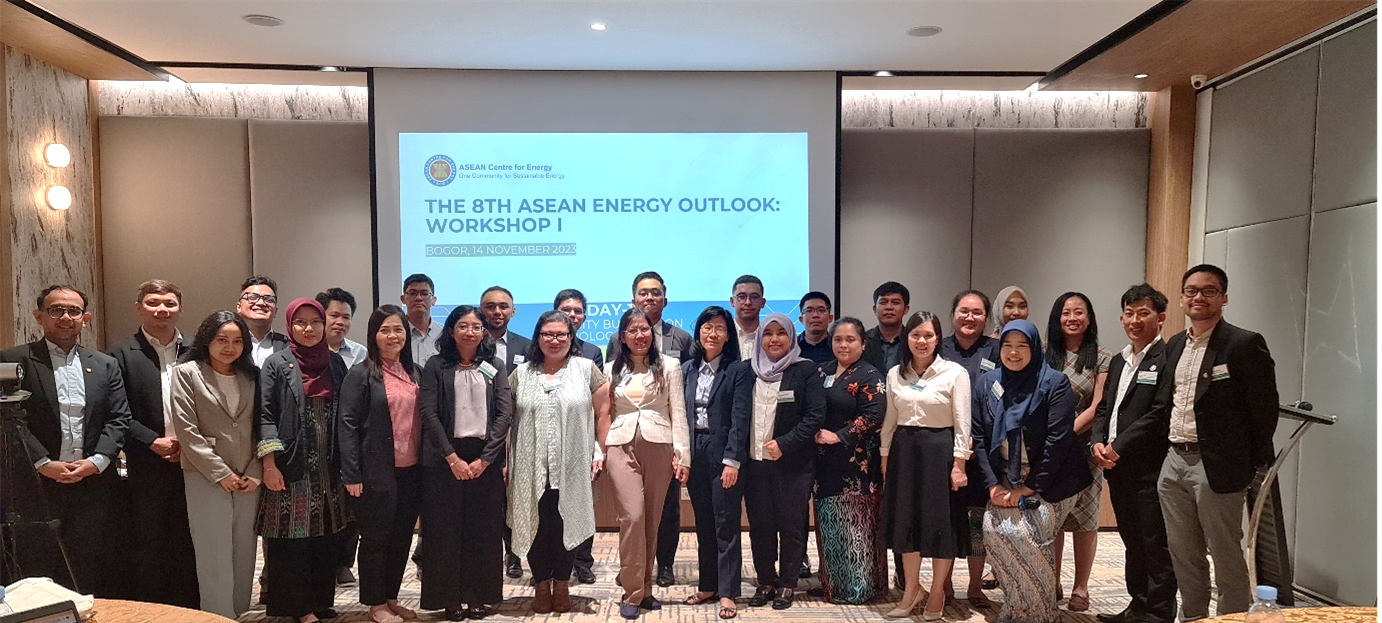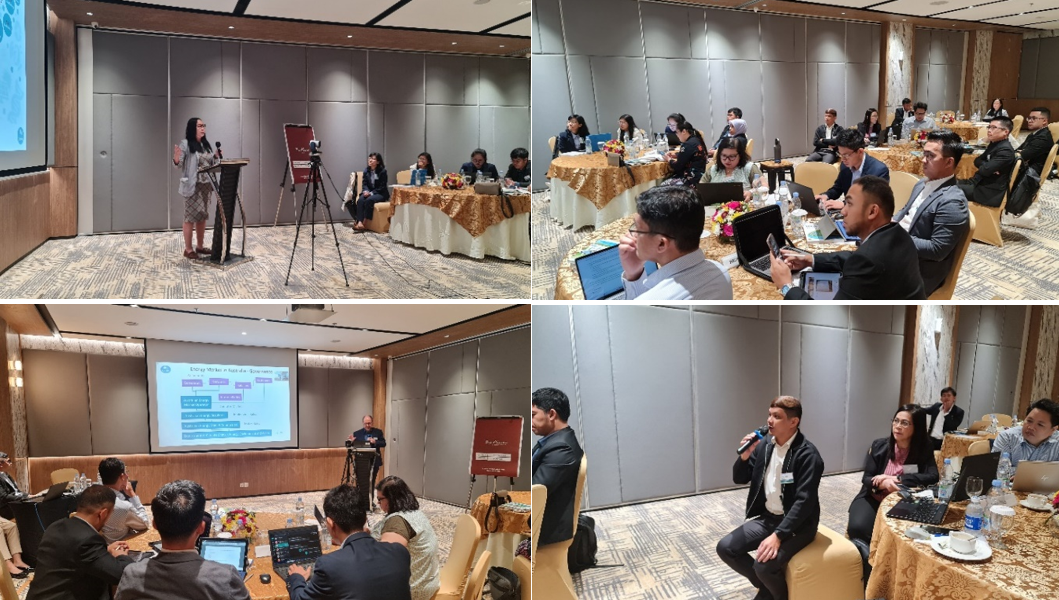Menu

Supported by the United States Agency for International Development’s Southeast Asia Smart Power Program (USAID SPP), the ASEAN Centre for Energy (ACE) hosted the Capacity Building on Technology Roadmap for all ASEAN focal points in the energy sector. It also marked the start of the 8th ASEAN Energy Outlook (AEO8) Workshop I, which consisted of Capacity Building on Technology Roadmap, Capacity Building on ICT for Data Analysis, as well as Working Meeting on the AEO8 Scenario and Data conducted in Hybrid.

This series of events was first opened by remarks from the Senior Manager of ACE, Christopher G Zamora, on behalf of the Executive Director of ACE, Dr. Nuki Agya Utama. He highlighted that the AEO has established itself as the central hub for energy data. During the Workshop on Day 3 and 4, the participants were expected to agree on the AEO scenario concerning each ASEAN Member State (AMS) ‘s interest. He reiterated ACE’s support to the AMS on shaping up the energy outlook in ASEAN. The first two days started with capacity building and learning activities on developing technology roadmaps and using emerging digital technologies such as AI and Big Data for energy data analysis. He closed the remarks by thanking the United States Agency for International Development’s Southeast Asia Smart Power Program (USAID SPP) for supporting the workshop.

The speech was followed by a brief introduction to the “ACE-USAID SPP Partnership: Advancing the APAEC Phase II: 2021-2025” from the Program Manager of USAID SPP, Phat Pumchawsaun. The SPP aims to advance economic growth and development in Southeast Asia by ensuring secure and market-driven energy sectors. Its three main objectives are to (i) improve the performance of energy utilities, (ii) increase the deployment of advanced energy systems, and (iii) enhance energy trace and integration. Phat Pumchawsaun pointed out that the support made to this workshop is part of the key areas that USAID SPP was supporting the APAEC Phase II: 2021-2025.

The workshop started by a presentation from Energy Strategy Leader, Chris Dunstan from the Commonwealth Scientific and Industrial Research Organisation (CSIRO), on the “Practical Guidelines, Successes, Challenges, and Lessons Learned.” Mr. Chris Dunstan went over two main things: The Australian Experience and Lessons Learnt for AEO8. Chris Dunstan highlighted the impact of climate change on Australia and why it is a priority for Australian policymakers. He emphasised that the focus on energy reduction should focus on energy reduction. CSIRO has six flagship challenges that they focus on (i) Health & wellbeing; (ii) Food security & quality; (iii) A secure Australia & region; (iv) Resilient & valuable environments; (v) Sustainable energy and resources; and (vi) Future industries. According to Chris Dusntan, CSIRO has strongly focused on sustainable energy and resources and is keen on supporting a secure Australia and regional environment. During the Q&A section, many of the questions from the participants were mostly about Australia’s experience in the energy transition and the potential lessons to be learned for ASEAN.
After the tea break, Mr Chris Dunstan’s presentation was briefly followed by a presentation by CSIRO Energy Transitions Consultant Ira Martina Drupady on “Solving the greatest challenges through innovative science and technology.” Her presentation focused on the work of CSIRO, the organisation’s commitment to ASEAN, and previous cooperation with AMS with a case study of CSIRO-Energy Generating Authority of Thailand (EGAT) Cooperation and the Future of Electricity Vietnam (FE-V) Project.
Chris concluded the presentation from CSIRO on the topic of energy roadmaps and discussions on job skilling for the energy transition, which have been well recognised in Australia, with a focus on updating the method of counting jobs and workers to understand what additional skills need to be added. The Australian government has set up a fund to assist in the energy transition for fossil fuel workers.

After the lunch break, the workshop continued with a presentation on “Case Study: Cambodia Energy Technology Roadmap” by Director of Department of Science, Technology, and Innovation (STI) Policy, Dr. Seng Touch from the Ministry of Industry, Science, Technology & Innovation of Cambodia. Recently, Cambodia published the EnergyTech Roadmap which aims to increase the local energy generation capacity with the support of Science, Technology, and Innovation (STI), increase the share of renewable energy in national consumption and its storage capacity for sustainable development, and leverage energy efficiency for domestic usage.
He explained Cambodia’s Roadmap had five main steps (i) Vision building; (ii) Environmental analysis (social, environmental, economic, technological & political); (iii) Identifying strategic products and services; (iv) Identifying key technologies; and (v) Charting technology roadmap. His introduction to the energy situation in Cambodia paved the way for the discussion on the importance of energy technology roadmaps and their important position in Cambodia’s energy transition. Dr. Touch presentation went into detail on the process of identifying key technologies, Social, Technological, Economic, Ecological (Environmental) and Political (STEEP) analysis, and how to involve key stakeholders based on the five steps. He then closed his presentation with recommendations, emphasising collaboration and knowledge sharing.
Related articles:
